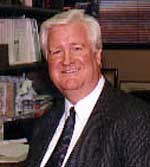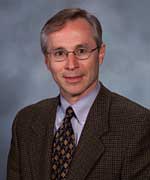By Laurel Druley
Minnesota Public Radio
January 29, 2002
|
| RealAudio |
Since September's terrorist attacks, scientists across the country have refocused their work. Many researchers, including those at the Mayo Clinic, are now concentrating on preventing or combatting terrorism. As a result, some say, they've put other worthy projects on hold.
| |
|
|
|
||
Ted Labuza, a professor of food science and technology at the University of Minnesota, he applied for a large research grant last summer. He wanted to study people's food safety habits at home. On Sept. 9, he was excited to learn the Food and Drug Administration had decided to fund his project.
"Sept. 11 happened. Two weeks later I got another letter from the head of FDA saying, 'Sorry, our priorities are changing and lysteria is not important. We're doing everything in the area of anthrax and bioterrorism,' Labuza recalls. "So that essentially cut off a major part of my research, which is still an important issue."
After initial work paid for by the Sloan Foundation, he left the project unfinished. Labuza says the turn of events was a letdown.
"Very frustrating. This is an area that's totally overlooked. The Sloan Foundation did fund me, but they didn't have the kind of funds to do a major study of this," says Labuza.
Across the country, projects may get overlooked as many scientists shift their focus toward the war effort and preventing terrorism.
Labuza has joined many of his colleagues and shifted gears. He plans to study the "traceability" of diseases in imported livestock and produce. Labuza is advising food companies how they can maintain a safe food supply.
University of Minnesota professor Ron Phillips sits on the boards of several national organizations, including the Council of Scientific Society Presidents. He says nationwide, scientists are asking themselves, 'What can we do?'
"It's been impressive to me how many groups are thinking about it," says Phillips. "Across the country I think there's surprisingly strong activity, to look at the issue and try to look ahead and apply the knowledge we have to protect our health and food supply."
| |
|
|
|
||
Scientists are talking about projects that range in scope from explosive detection systems to identifying plants that could provide resistance to new diseases.
Phillips says the Department of Defense recently sent science leaders a list of goals they would like accomplished in the next six to nine months. The list included technology that would take a picture of a suspected terrorist in a crowd.
Phillips says it's clear the push for innovative ways to deal with terrorism will likely replace other projects.
"Certain things would fall off the radar screen as that happens, but they're all important. It's all a matter of priorities, and clearly the terrorism issue is a matter of priority right now," Phillips says.
President Bush will announce his priorities early next month, and how much money his administration will direct toward bioterrorism research. After Sept. 11, Congress added $155 million to the original $92 million set aside for bioterrorism research.
Researchers at the Mayo Clinic have been conducting research involving anthrax for a couple of years. Franklin Cockerill, a microbiologist, says the Mayo Foundation has been funding his anthrax project.
Long before Sept. 11, Cockerill had been developing tests to detect anthrax and other organisms. Since September, his team has focused more on anthrax, but has tried to keep up with their other research as well.
"My area of expertise - microbiology - is developing rapid diagnostic tests for agents of infectious diseases. We were doing this before Sept. 11 for a bunch of other organisms, and that is still going on. Our development for those tests are only behind 30 to 60 days," says Cockerill.
But many scientists don't have the financial backing or staff to work on more than one project. So they have to go where the money is, which may mean setting other research aside.
More Information

